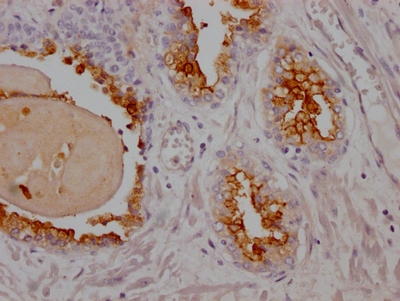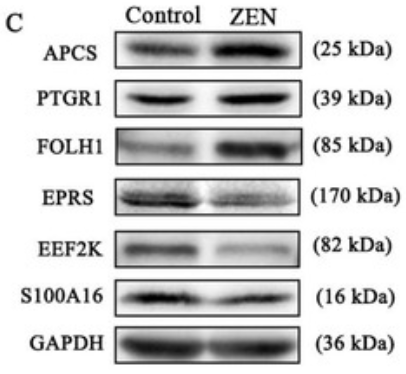Intestinal folate hydrolase, encoded by the FOLH1 gene, modulates folate absorption by cleaving glutamates from dietary polyglutamyl folates. A mutation in the FOLH1 gene may be linked to poor dietary folate absorption in the intestine. Oncologically, FOLH1 is upregulated throughout prostate cancer cells and is linked to a more aggressive phenotype. FOLH1 expression rises over time in higher-grade malignancies, metastatic illnesses, and hormone-resistant diseases. It is also luminally expressed by the neovasculature of most solid tumors but not by normal vessels.
The production of the recombinant FOLH1 antibody includes extracting RNA from spleen cells that are derived from immunized animals, reversely transcribing the RNA into DNA, sequencing and screening antibody genes, amplifying the heavy chain and light chain genes of the antibody using PCR technology, linking and cloning the genes into a plasma vector, and introducing the vector clone into a mammalian cell for functional antibody expression. The recombinant FOLH1 antibody was purified using Affinity-chromatography. It can be used to detect the FOLH1 antibody from Human in the ELISA, IHC.





